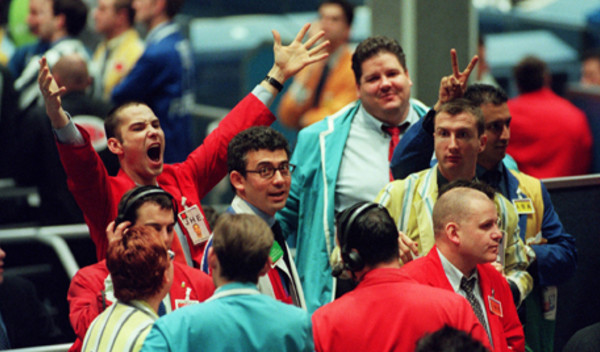

October's market volatility caught out Jacob De Tusch Lec, manger of the £4.1bn Artemis Global Income fund.
His fund was among the very best performers in the IA Global sector until 2017, when the manager’s focus on more value-oriented shares left him out of step with the prevailing market sentiment which favoured the growth style of investing.
But in October his fund lost 9.3 per cent, close to double the 5 per cent loss for the average fund in the IA Global sector in the same time period, according to data from FE Analytics.
Growth investing tends to be in favour when the outlook for inflation and economic growth are low, while value investing tends to come to the fore when investors feel growth is strong and they have to focus on the valuations of companies more than their growth prospects.
Mr De Tusch Lec, who formerly worked as an economics lecturer in New York, had positioned his fund for an improved economic growth outlook and a shift in market sentiment, expecting that shift to mean a sell-off of stocks that had performed best in a growth environment, such as large cap technology, and an improved performance for stocks that had traded at lower valuations.
But this hadn’t happened for most of the past year and his fund lost 4 per cent in 2018 year to date, much worse than the average loss of 1 per cent for the sector.
In his latest update to investors, Mr De Tusch Lec said October was a particularly bruising month for his fund because of this.
He said: "When the sell-off eventually came, however, the market had little interest in valuations or cashflows. It simply turned to defensive stocks. Questions of 'growth' versus 'value', long debated by the market (and by us) became irrelevant.
"'Growth' stocks in the technology sector fell – but so did 'value' cyclicals: materials, industrials and financials. Investors either left the equity market altogether or shifted into its most defensive areas (utilities, consumer staples and real estate).
"Some of our cheap stocks fell by 20 per cent despite there having been no deterioration in either news or fundamentals. As a consequence, we found no protection in owning cheap stocks: they simply became cheaper."
Nick Train, who runs the Lindsell Train Global Equity Fund, is an ardent advocate of the growth style of investing and believes value investing is less effective in an age of digital disruption because companies trading on cheap valuations are more likely to be doing so because of disruption to business models than market sentiment.
But while value investing didn’t come to the fore in the way many expected, it didn’t help Mr Train’s fund, which lost 7 per cent compared with the 5 per cent loss for his sector.
The largest fund in the IA Global sector is the £16.5bn Fundsmith Equity fund, run by Terry Smith.
He is another manager who favours the growth style of investing but his fund broadly matched the negative returns of the sector during the month.
One fund manager who has had a distinctly more cautious outlook for global growth than his peers is Bruce Stout, who runs the £1.6bn Murray International investment trust.
Mr Stout’s caution was rewarded in October as his trust fell by less than 4 per cent, while the average trust in the AIC Global sector fell by more than 5 per cent.
In his update to investors in the trust at the end of September, Mr Stout said: "Nobody wins under global protectionism. History clearly shows how distorting the worldwide movement of goods, services and capital always results in lower growth and higher inflation.
"As the world’s two largest economies, the United States and China, ratchet up the trade war rhetoric the negative consequences for consumers in the import-dependent developed world are painfully obvious.
"Lower spending, lower growth and overall decelerating economic activity appears increasingly inevitable as already extended business cycles in the United States, the UK and Europe finally come to an end. Great caution continues to be warranted."
One of the very few funds to record a positive performance in October was the £4.1bn Troy Trojan fund, which posted a net gain of 0.39 per cent in the month, compared with a net loss of over 4 per cent for the average fund in the IA Flexible Investment sector in the same time period.
Sebastian Lyon, the manager, benefited from having about £200m of the fund's capital invested in gold bullion, which rose during October.
David Scott, an adviser at the firm of Andrews Gywnne in Leeds, said he had been moving clients out of equities for months and he expects the market downturn to continue.
david.thorpe@ft.com



